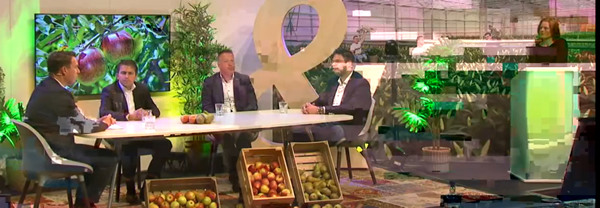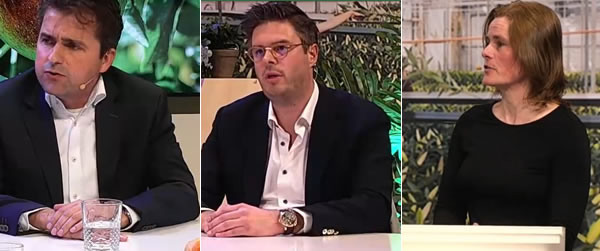Last week, the Dutch bank Rabobank presented its top fruit vision during a webinar. The report was titled 'The top fruit sector in 2030: growing fruit cheaply is too expensive'. It says the sector has a good image. It grows healthy products more sustainably than other food and agricultural sectors.
Authors Arne Bac and Cindy van Rijswick nevertheless also observed a saturated market with much competition. That's both between different countries and suppliers in the Netherlands. Costs are rising, especially labor costs, and risks are high.
Top fruit cultivation can be compared to a premier-level sport. Rabobank points out that high risks should equal high rewards. That's not currently the case. The bank also doesn't think farming more low-priced products is a solution. Yet, there are opportunities for companies.
That's for those that can supply good quality products with a range that customers demands. Rabobank also sees chances for businesses that do their own marketing, or have other sources of income besides growing top fruit.

Saturated
The European apple market is fairly saturated. Demand is declining annually. The Dutch market share is no longer growing either. Even in the main Dutch apple market - Germany. The bank, therefore, sees the Dutch market's future in primarily high-quality apples. Pears are traditionally an export product. These will continue to be sold mainly in Europe.
As with apples, pear consumption isn't growing anymore. That means every effort will likely have to be made to sell Dutch pears in Europe. There's little possibility of expansion. There are, however, opportunities for distinctive pear varieties. These are for those with, for example, a different color or new flavor.
Transparency
After Cindy's presentation, Gerard van den Anker and Matthijs Nijhoff also joined Arne Bac as moderators. Gerard is chairman of the Dutch Fruit Growers Organization. Matthijs is from Triple F Fruit, which focuses primarily on fruit imports. Pricing was one of the subjects discussed. A tricky subject because everyone interprets 'fair' differently. Gerard thinks price transparency is key to achieving fair prices.
"Creating consumer prices is often a murky affair. Not everything is precise and clear. Let's make that transparent." The starting point here is that every link in the chain must make money. "It's not right that primary producers are the chain's final link. Not given all the social requirements and goals growers have to meet. In that case, prices should also allow farmers to expand their business in a future-proof manner," says Gerard.

Gerard van den Anker, Matthijs Nijhoff, and Cindy van Rijswick
Matthijs agrees that transparency is vital. "We work 100% transparently with our growers. We market products for the farmers. Growers know what the costs are from entry to sale. We advocate openness." He sees retailers are already cooperating. "As importers, we already see that openness. As well as the win-win situation and honesty with producers. Of course, you have to deal with market forces, but fairness is the future."
Level playing field
A viewer mentioned cheap Polish Jonagold apples. Gerard cited the importance of a level playing field in Europe. "We are a united Europe. But we work at different speeds and with different regulations." He says the situation is becoming increasingly unbalanced. "Where are those sustainability requirements and goals when it comes to, say, natural habitats and biodiversity?
"That's not reflected in those apples. Dutch growers, however, do so much more than just cultivate fruit. It's unacceptable that the Netherlands sets the bar so much higher than other countries. Then we're pushed out of the competition."
Matthijs admits there's no visible difference between, for example, Polish and Dutch Jonagolds. But, their production and cost prices do differ. "You can't compete with that, and you shouldn't want to. I think chain partners should look at what catches on. Which apple can we sell in which way?"
"That's what I'd focus on." He thinks Dutch farmers should stay away from competitive markets. There are, for instance, opportunities for high-priced products. They should follow growers in New Zealand's example. They have high costs but still create good sales opportunities.
You can read more about Rabobank's top fruit vision in Primeur soon.
